This is a vocabulary lesson all about train travel. This will help you in English speaking situations.
The important vocabulary is in blue.
Train times
To know the train times, you must read the timetable.
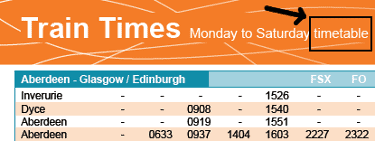
Departure times are the times of the trains leaving the station.
Arrival times are the times of the trains coming into the station.
Off-peak time is the period of time when few people are taking the train. It is a very quiet time. It is cheaper to take the train during off-peak times.
Peak time is the period of time when lots of people are taking the train. It is the busy time. It is expensive to take the train during peak times.
Train tickets
The cost or price of a train ticket is called the train fare.
You can buy a train ticket at a ticket machine. Ticket machines are sometimes called ticket kiosks.
Alternatively you can buy a ticket at a ticket office.
If you want to go somewhere and come back, you buy a return ticket.
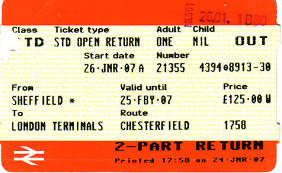
If you want to go somewhere but NOT come back, you buy a single ticket. This is also called a one-way ticket.
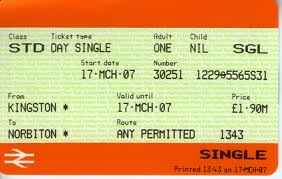
If you take 1 train to go from Bristol to Manchester, this is a direct train
If you take 2 trains to go from Bristol to Manchester, you have a connection in Birmingham
The train from Birmingham to Manchester is a connecting train.
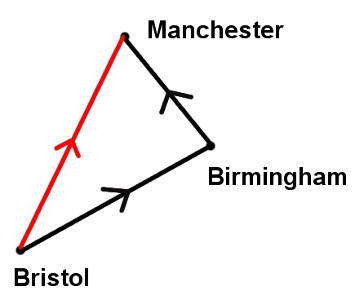
A second class ticket will have minimum comfort and services and it will be cheaper.
A first class ticket will have more comfort and services and it will be more expensive.
Sometimes you must stamp your ticket at the beginning of the journey.
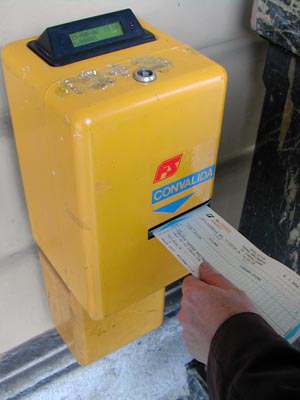
Luggage
You can leave your luggage in a left luggage locker.
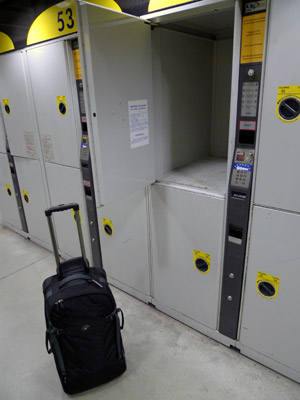
Important grammar:
“luggage” is an example of a collective noun in English. It is always in the singular form but it refers to all of your bags and suitcases.
Example:
(I have 3 bags. They are too heavy for me)
Can you help me with my luggage? ![]()
Can you help me with my luggages? ![]()
Travel information
If a train is delayed, it means that it is late because of a problem. Example, the train to London is delayed due to bad weather.
If it is “on time“, it means that the train will arrive at the expected time. It is NOT late.
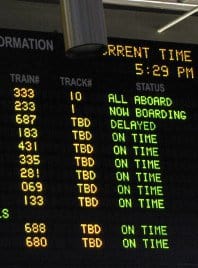
A cancelled train means that it is not running.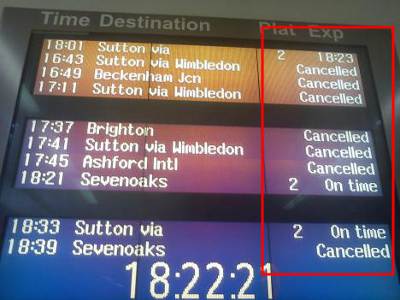
If you are hungry or thirsty during the journey, you can go to the buffet car for something to eat or drink.
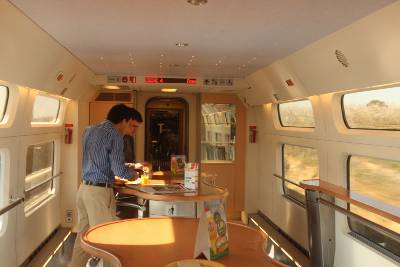
Entering and leaving the train
We use 2 very common phrasal verbs to describe entering and leaving the train:
get on = to enter
get off = to leave
Examples:
Please get on the train immediately. It is going to leave!
This is our station. Let’s get off!
Video lesson
Below is a video lesson on our YouTube channel about train travel. In the video, you will hear the correct pronunciation and also many more examples. There is even a quiz at the end of the video!
There are over 100 video lessons on the Crown Academy of English YouTube channel.


Marisa Tamura says
I liked this lesson. It is very good for me. I learn more easy. Thank you.
Azimeh says
This lesson is very useful for me thank you so much.
Houda says
Thanks a lot for this lesson
Zoubida says
A cross 5) single ticket
7)ais le
8) pas səngər
Down 1) pak
2)platforma
3)lignage
4)ticket machine
6)track
Karen L. MacDonald, PhD says
Very creative and cleverl!
Karen
Amani says
I found this lesson is really good for me.
thank you
Denial says
Hello Andrew, Thanks for this post, Its quite better to learn English vocab train travel.
ASOGAR says
Good , But What we say for starting point of a train (for example: London to Manchester) and Destination
TC says
You should say point of origin.
Layzee says
i dont need zis lecture bcs i ma ze best pupil in my high school and ofc if u need it u r not the best